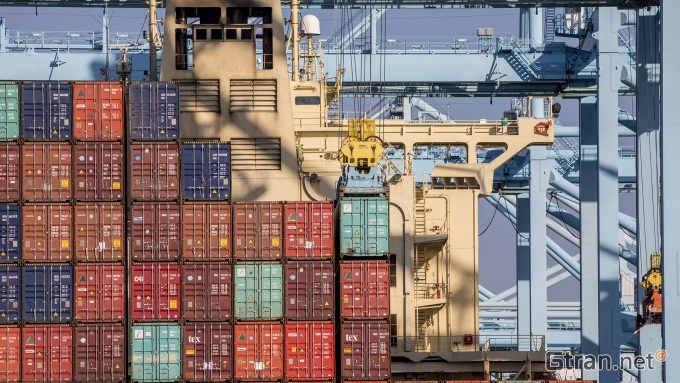A perfect storm of newbuild containership deliveries, weakening demand and a dearth of scrapping candidates is throwing the supply/demand balance hugely out of kilter.
Shipowner association Bimco said it expected a “slight improvement” in the balance next year, but nevertheless added that trade, freight rates and time-charter rates would remain weak.
In its third-quarter overview and outlook publication for the industry, Bimco has downgraded its global container volume growth for this year to an anaemic -0.5%, from +0.5%.
This is in contrast to its revised 2023 fleet growth forecast of 7.9%, as a result of record newbuild deliveries of 2.3m teu of tonnage.

And Bimco has reduced its ship recycling estimate for the year, to just 200,000 teu, as shipowner heads refused to be turned by demolition prices that are only a third of the current asset values of their older ships.
For example, Sea Consortium recently fixed the 17-year-old 1,712 teu Rijnborg on a five-month charter, with an option to extend, at a daily hire rate of $13,000. According to Vesselsvalue data, the handy container vessel has an asset value of $9m, but a scrap value of only $3m.
This toxic mix of soft demand and a chronic oversupply of tonnage has forced ocean carriers to slam on the brakes and blank a massive amount of capacity before, during and well beyond, the Chinese Golden Week holiday in the first week of October.
Analysis by Sea-Intelligence reveals that in the past two weeks, a further 29 Golden Week blank sailings have been announced on transpacific tradelanes, with 18 more voided between Asia-Europe.
The consultant said the withdrawn sailings from Asia represented “a massive reduction in scheduled capacity, due to a large number of ‘last-minute’ blank sailings”, and noted that North Europe was especially being targeted by carriers wanting to squeeze capacity to boost plummeting spot rates.
“The percentage of blanked capacity on Asia-North Europe, across a four-week period, is now at 19.9%, which is higher than the 2017-2019 period average,” it said.
Indeed, in Maersk’s European market update today, the transport group said: “During Golden Week, percentage capacity reduction increased from a typical 11.1% to 17%, while in the three weeks following Golden Week, we are seeing an increase from 0% in previous years to 13.8% today.”
It added that percentage capacity reductions during and around the Chinese holiday “are now expected to be the highest across all analysed years”.
And Maersk issued a caution to Asia-North Europe shippers that they may need to navigate even more cancellations, over and above those already announced, explaining: “The situation may still based on demand, potentially leading to further capacity reductions.”


